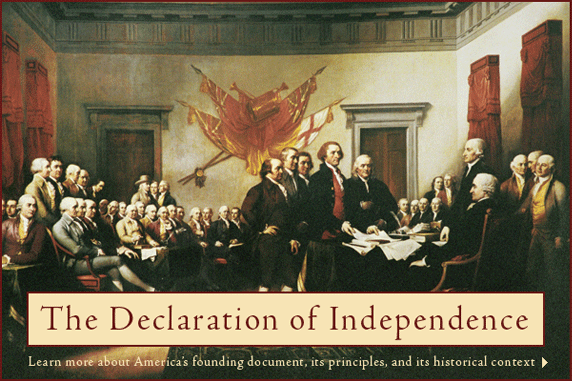

On May 15, 1776, the Virginia Convention passed a resolution that "the delegates appointed to represent this colony in General Congress be instructed to propose that respectable body to declare the United Colonies free and independent states." It was in the spirit of that directive that on June7, 1776, Richard Henry Lee, a delegate from Virginia, read a resolution before the Continental Congress " that theses United Colonies are, and of right ought to be, free and independent States, that they are absolved from all allegiance to the British Crown, and that all political connection between them and the State of Great Britain is, and ought to be, totally dissolved."
The consideration of this resolution was postponed. Thomas Jefferson, John Adams, Benjamin Franklin, Roger Sherman, and Robert Livingston, known collectively as the Committee of Five were appointed to draft a statement, incorporating the resolution in presenting the colonies' case for independence.
On July 2, 1776, the Declaration with the Lee resolution was adopted by twelve of the thirteen colonies (New York did not vote in favor until July 9th). Congress made some revisions on July 2 and 3, and on the morning of July 4th.Although no one actually signed the Declaration of Independence on July 4th, it was officially adopted that day,and the Committee of Five took the manuscript to John Dunlap, the official printer to the Congress. The Declaration was signed by 50 of the members of Congress on August 2, 1776. Thomas McKean was the last to sign, sometime in January of 1777.
Unplanned events of note included the death of John Adams (2nd President) and Thomas Jefferson (3rd President) in 1826 within hours of each other on the 50th Anniversary of Independence Day; the death of James Monroe (5th President) in 1831, and the birth of Calvin Coolidge (13th President) 1872.
This article was published in a different form in "The Great American Citizenship Quiz: Can You Pass Your Country's Citizenship Test?" by SolomonM. Skolnick. 2006, 2010 Walker & Company, A Division of Bloomsbury Books